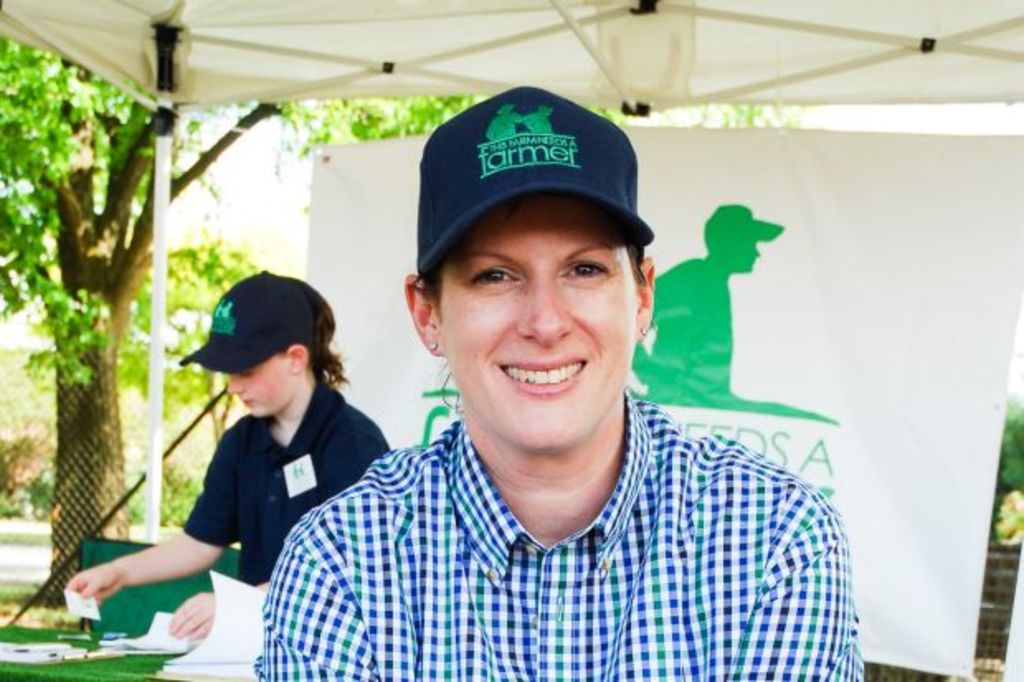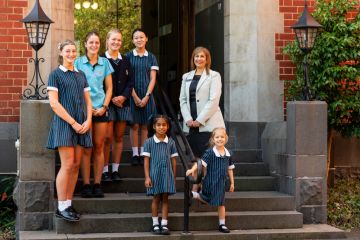This farm needs a farmer: The business connecting tree changers with retired farmers

When Melissa Connors moved with her family from Melbourne to regional Victoria, she was looking forward to an idyllic new life in the country. She’d imagined that living on 10 acres would simply involve applying everyday skills on a larger scale.
It became rapidly apparent, however, that country living would require a whole new skill set. And she had no idea where to start.
Connors realised that, with no friends in the area and no neighbours in the conventional sense, she had no one to ask for advice. She’d spotted a farmer walking past her gate every day but had struggled to engage him in conversation.
“I always tried to get his attention, just to be friendly, but he’d ignore me,” she says. When Connors finally convinced the farmer to stop for a drink on a particularly hot day, she complimented him on his dedication to walking. She describes his response, “I’m off the farm now, what else do I do with my time?” as a lightbulb moment.
“How many of these retired farmers do we see walking around our country towns, just killing time, while a wave of tree changers make the move to rural properties,” she says. “We need that knowledge. It just made sense to create a platform where we could connect.”
- Related: Country experiences city-dwellers are missing out on
- Related: The business helping farmers take a holiday
- Related: Aussies with country lifestyles in the city
This idea led to the creation of This Farm Needs a Farmer. Essentially, the project allows tree changers to seek advice and assistance from experienced farmers with respect to their property and its needs. For Connors, community inclusion was a large part of her motivation. She hoped to build a stronger and more cohesive community, helping people recognise the value of their knowledge and skills.
One of the ways Connors has connected farmers and tree changers is by holding field days. On Connors’ invitation, tree changers, Genevieve McCarthy and Anthony Dick attended the project’s first field day in March and found it invaluable. Having both grown up in farming families, McCarthy and Dick had made the urban to rural move as they wanted their three boys to enjoy all that country living had to offer.
With a particular interest in keeping chickens, they spoke to local farmers with expertise in this area. “Many of our questions were answered,” says McCarthy. “Not only how to keep chickens, but also how to keep our house warm in winter, how to prepare our property against the risk of fire, what native trees to plant that thrive in this climate, how to keep bees and how to control weeds.”
While the appeal to tree changers is clear, one of the more difficult parts of the project is getting older or retired farmers involved. The first step is identifying them which Connors has done through established community groups, such as Lions and Rotary.
Once she’s identified a farmer, convincing him or her that they have something to offer is probably the biggest challenge of the project. “They seem to think that everyone has this knowledge,” says Connors. “It’s just not the case. There’s a hand-me-down knowledge gap that really exists.”
But one retired farmer who does understand the value of the project is Ian Clarke. Clarke, a commercial orchardist for 30 years, now lives just south west of Daylesford on a hectare of land where he still farms on a small scale. While attending the field day, he was struck by the enormous potential of the project, given the wide range of advice on offer.
“It’s all there from how you shear a sheep to how you look after fruit trees to how to change a spark plug,” says Clarke. “You name it, there’s going to be some old guy like me that is going to know the answer.”
Clarke accepts that some farmers will want nothing to do with farming once they’ve retired. However he hopes that others will recognise the expertise they have to offer the younger generations. With a wealth of experience in biodynamics himself, Clarke believes he can potentially help others consider alternative ways of farming, “That’s why I’m prepared to put myself out there”.
We recommend
States
Capital Cities
Capital Cities - Rentals
Popular Areas
Allhomes
More







